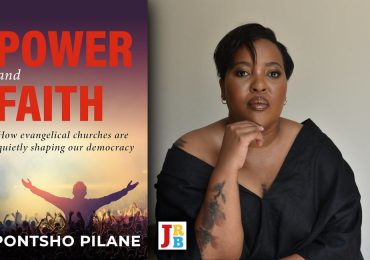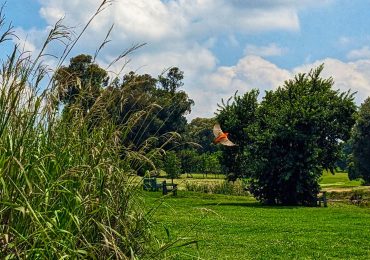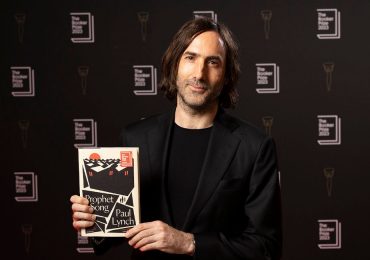This December marked the The JRB’s forty-second issue, the final issue of our fourth volume. With the new year just around the corner, it seems fitting to share the ten articles that generated the most excitement or interest, during this annus horribilis.
Note: the article holding the number one slot is shortly to depart this site, to reappear in the author’s forthcoming book of essays. Read it while you can!
The JRB Top 10 of 2020
10. George Hallett, 1942—2020, RIP

Legendary South African photographer George Hallett died in July, aged seventy-eight. Hallett was probably best known for his poignant photographs of District Six in Cape Town, his portraits of African artists in exile, and his series of photographs of Nelson Mandela taken during the 1994 elections. His work is renowned for its humanity, its striking textures and sparse beauty. He delighted in being the silent observer, photographing people without them being aware of him. We will miss his presence nonetheless.
9. ‘Thinking while black’—Read Grace A Musila’s essay from the award-winning book Black Academic Voices: The South African Experience
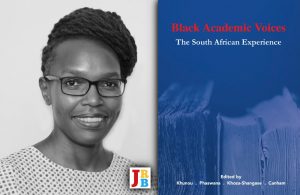
‘How do we craft a healthy, dignified blackness, in a world where blackness is a captured identity location that needs permission to speak, and must play nice and tiptoe around white sensitivities?’ asks Grace Musila, in an excerpt from her essay ‘Thinking while black’, from Black Academic Voices: The South African Experience.
Black Academic Voices was the winner of a 2020 Humanities and Social Sciences Award.
8. The archive has been rigged—Wamuwi Mbao reviews Patric Tariq Mellet’s The Lie of 1652, uncovering the debased half-truths installed as national narrative

In The Lie of 1652, Patric Tariq Mellet fills in the ‘before’ that was of little interest to those invested in creating the myth of an empty landscape, writes Wamuwi Mbao:
‘Mellet is interested in how it happens that debased half-truth is installed as national narrative, as well as who ends up being cropped out of history as a result. The premise of his involving 368-page volume is that the established understanding of precolonial and colonial history is inadequate for reckoning with the loss of belonging that took place on our land—and which continues to bedevil those South Africans whose claim of belonging is disallowed or disputed.’
8. New short fiction: ‘Ugborikoko’ by Jerry Chiemeke—The JRB’s Pidgin English debut
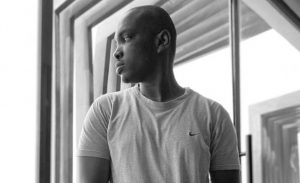
In March, we published new fiction by Jerry Chiemeke—our first ever piece in Pidgin.
The story is written in Warri Pidgin English, a dialect of Nigerian Pidgin, and tells the tale of a boy growing up in a suburban neighbourhood in southern Nigeria in the late nineteen-nineties.
6. ‘The majority of writers in Africa, of us, confine ourselves, rather than having great ambition’—An interview with Nuruddin Farah, by Lebohang Mojapelo
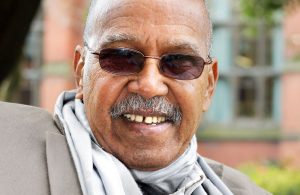
Internationally renowned Somali novelist Nuruddin Farah is known for his politically conscious writing, which led him into exile as a young man, after he stood up to the military regime of Siad Barre. His work closely follows the history of Somalia through three trilogies, in which he dissects the interweaving strands of Somali life: dictatorship, family, tradition and religion. Published in the famous Heinemann African Writers Series at the beginning of his career, Farah is considered to have led the Second Generation of African writers.
In February, Lebohang Mojapelo had the pleasure of attending an event in Farah’s honour, commemorating fifty years of his debut novel From a Crooked Rib (1970), and sat down with the writer to talk about language, tradition, fame and infamy.
5. Intimations of an ending—Carey Baraka on the unspoken demise of Kwani?, and the death of a dream
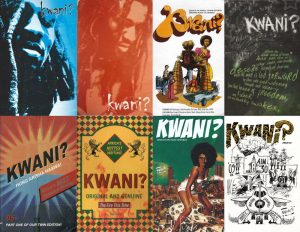
‘Still, there were dreams, and there were dreamers.’ In our August issue, Carey Baraka attempted to gather together the stories of Kwani?:
‘It was around ten in the evening, and the night was before us. We were going down the road to an establishment Kantai liked, to listen to some live rhumba. As he pulled out of the underground parking lot, Parselelo Kantai turned to Angela Wachuka, seated next to him, shotgun. “End of the decade,” he said. “What a year. First Binya dies, then Ali.”
‘In the ether between the two deaths, unspoken, was Kwani?’s own—and the death of the dream its founders had held.’
4. A trilogy of visa rejections—Nkiacha Atemnkeng reflects on his embassy misadventures
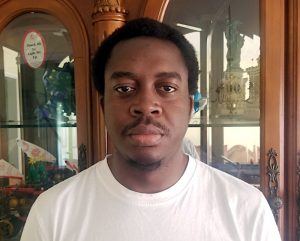
‘I am a Western visa rejection expert. Three times—even though I work at an airport. But I am mostly a literary reject, a reality which also, somehow, always presents itself in sets of threes. Like a trilogy.’
In our October issue, Nkiacha Atemnkeng related the visa trials that scuppered his chances of accepting a prestigious international literary residency. The piece has since been featured on the UK Guardian’s Long Read section, and was also made into a Guardian podcast.
3. [Conversation Issue] ‘I know what lurks in the bushes. And that’s how I write the stories’—Jason Reynolds talks to Tony Eprile about resistance and the imagination
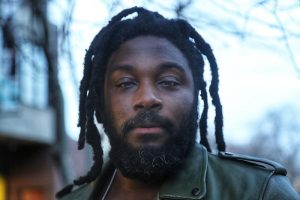
‘I’m a black man. I’ve lived my whole life as a black man, and therefore I don’t intellectualise my blackness. I don’t see it like that. I don’t live a life of events, it’s more a through line. It shows itself daily in all the subtle ways, so it isn’t some sort of burden that weighs heavily on my life. It’s just a stick in my craw that’s always there. But that doesn’t stop me from moving, and laughing, and singing. I just know what lurks in the bushes, that’s all. And that’s how I write the stories.’
As part of our January Conversation Issue, author and Editorial Advisory Panel member Tony Eprile was in conversation with Jason Reynolds, the New York Times bestselling author whose titles include All American Boys, the Track series, Long Way Down, For Everyone, Miles Morales: Spiderman and, most recently, Look Both Ways: A Tale Told in Ten Blocks. Just before the issue was published, Reynolds was named the US Library of Congress’ National Ambassador for Young People’s Literature.
2. Harry Garuba, 1958—2020, RIP

Professor Harry Garuba, renowned academic, author and poet, died in February, aged sixty-one, following a long illness.
The JRB editor Jennifer Malec recalls, ‘Harry taught me African literature and philosophy during my MA at UCT in 2005. I remember him as an extremely kind, gentle man, with a wicked sense of humour and an extraordinary mind.’
He is greatly missed.
1. ‘Does my chest sound tight to you?’ The first 40 days; notes from a South African lockdown, by Nadia Davids

‘At first, you wake up each morning determined to make something of the day. You will be your best self. You will feed your children, home-school without complaint, entertain them, be entirely present. You will work, exercise, meditate, practice mindfulness, make lists (both to-do and gratitude), clear clutter, take up an art project, read, bake, plant herbs, plan meals, set aside time to speak to your friends. You will obey all the instructions and injunctions of self-care; in doing so, you’ve been assured, you will build resilience, you will defend against despair. By the time night comes you never want to hear the word ‘resilience’ again.’
As the pandemic took hold this year, and most of us suffered the energy sapping effects of lockdown, Nadia Davids was writing, with astonishing clarity. If you find yourself forgetting what 2020 was like, this piece will take you back.


